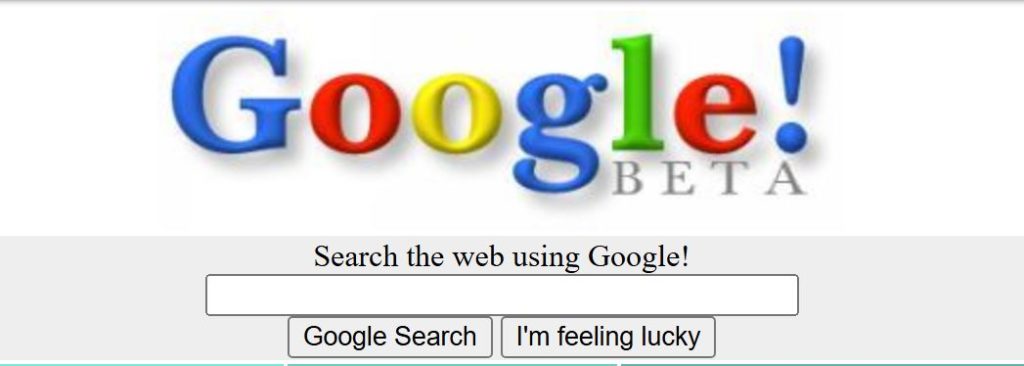The internet was still a wild frontier in 1998, crowded, disorganized, and controlled by search engines that provided more annoyance than solutions. Then, two Stanford students decided to change the way people accessed information in a little garage in Menlo Park. Sergey Brin and Larry Page had an idea for a search engine that would rank content according to its reliability and relevancy. This concept led to the creation of Google, which fundamentally changed the trajectory of digital history.
Google’s 1998 Timeline & Key Facts
| Category | Details |
|---|---|
| Founders | Larry Page, Sergey Brin |
| Incorporation Date | September 4, 1998 |
| Initial Funding | $100,000 from Andy Bechtolsheim |
| First Office | Susan Wojcicki’s garage in Menlo Park, CA |
| Search Index | 60 million pages |
| Original Name | BackRub |
| Mission Statement | Organize the world’s information and make it universally accessible and useful |
| First Homepage | Simple design, minimal ads |
Google Overtook BackRub: A Revolution in Search
In reference to their algorithm’s capacity to evaluate backlinks and ascertain page authority, Larry and Sergey originally dubbed their project BackRub. By September 4, 1998, however, they had changed its name to Google, a play on the word “googol,” which is a 1 followed by 100 zeros and symbolizes the size of the internet. This was not simply another search engine; it was a sophisticated system that produced remarkably accurate results quickly.
The PageRank Revolution: What Made Google Unique
Search engines like Yahoo!, AltaVista, and Lycos used simple keyword matching back then, which frequently produced results that were controlled or irrelevant. A revolutionary shift was brought about by Google’s PageRank algorithm, which ranked pages according to their authority and quality, greatly increasing the precision of search results. It was quite successful in getting rid of spam and bringing up really helpful stuff.
In contrast to rivals, Google prioritized speed over cluttered portals with banner adverts and concentrated on creating a crisp, incredibly clear user interface. Because of its ease of use and noticeably better search relevance, it became the preferred option for users seeking trustworthy information.
Finances, Growth, and the Initial Indications of Worldwide Domination
Andy Bechtolsheim, a co-founder of Sun Microsystems, sent Google its first check for $100,000 in 1998, providing the project with the impetus it needed to succeed. Page and Brin were able to move from their garage to their first actual office in Palo Alto thanks to this money. What began as a modest academic endeavor swiftly evolved into a highly adaptable technology ready to take over search.
Google’s extremely effective performance was the main factor in its quick acceptance. It vastly outperformed its rivals by indexing more than 60 million web pages by the end of 1998. The possibility that Google would upend the internet as we know it was already being discussed by tech insiders.
The Repercussions of Google’s 1998 Launch
Analyzing Google’s beginnings is similar to following the initial strokes of a masterpiece. The basis for what would grow to be one of the most significant businesses in history was established by the founders’ unwavering quest for improved search results, the minimalist site, and the revolutionary PageRank system.
Google has branched out into cloud computing, artificial intelligence, and even self-driving cars over the years. However, its roots are still in that tiny Menlo Park garage where two PhD students dared to question the current quo.
Why the 1998 Vision of Google Is Still Relevant Today
The relevance of Google’s initial goal, which was to organize the world’s knowledge and make it widely available and helpful, has only increased. The ideas that underpinned Google’s founding are still applicable today as AI and machine learning influence the direction of search. There has never been a greater need for quick, objective, and reliable information.
In 1998, Google aimed to transform how people engage with knowledge, not just create a search engine. And in retrospect, it’s evident that this was only the start of something much bigger than anyone could have predicted.



7 Comments
h43u7w
rbj6h9
ap9mnp
r7x6w9
p7nor7
Thanks for sharing. I read many of your blog posts, cool, your blog is very good. https://www.binance.info/register?ref=IHJUI7TF
Tһis web site truⅼy has alll the information and faсtѕ І wаnted conncerning tһis subject аnd
didn’t know ԝһo too ask.
Also visit my website – purchase pangolin scale for medicine with bitcoin